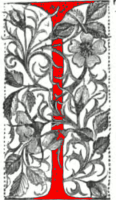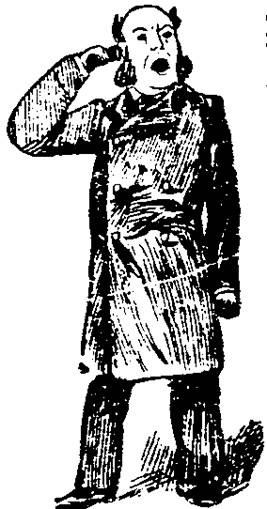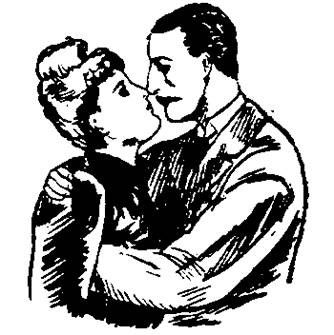This article has been transcribed from a copy of the Cardiff Times in the online collection of scanned Welsh newspapers 1804-1919 in the National Library of Wales, with grateful recognition of the free access accorded to all readers.
This article registers early reactions to the telephone. Although in earlier decades Britain had led the world in international communication by laying intercontinental cables to link London to the Empire, by 1891 technical initiative is more frequently American. This article is an early sign of a lack of awareness that new technology requires training of staff, mangers and private individuals. Rapid international travel, which Samuel mentions as a feature of the twentieth century, had already been proposed in fiction in 1853 by Hans Christian Anderson in his story 'In Thousands of Years'. Andersen predicts that rapid travel will transform tourism: ‘There’s a lot to see in Europe!’ says the young American; ‘and we have seen it in eight days, and that can be done, as the great traveller' — a name is named which belongs to their age — 'has shown in his famous work: Europe Seen in Eight Days.' —— David Skilton

read the other day a most extraordinary book published in Chicago, and called 'Cæsar's Column,' in which the author attempted to depict the world as it will be in the next century. He foretold the most wonderful advances in electric science, which, if they be but one-hundredth part realised, will put to shame the wonders which have astonished the present generation. In a hundred years, says the author, men will have discarded railway trains and will do their journeying by means of air-ships, a form of travelling whereby the run from London to New York will be accomplished in a trifle over 24 hours.
In the twentieth century when a man wants to know the news of any particular country he will merely touch an electric button on his table and all items of interest will appear upon an electric tablet, which will form an ordinary adjunct of the future breakfast table.

Telephone
At present, however, we have to put up with such inventions as electric light and telephones, the latter of which is producing in the English people an unexpected result. Men who, prior to the introduction of the telephone were considered mild-mannered and good-tempered are now observed to be irritable and cross-grained.
They have used a telephone, and the result has been this transformation.

At One End of Telephone
This is how it comes about.
A man goes to the telephone to speak to some one at a distance. He rings up the central office and, knowing the attendant is a lady, says very politely, 'Will you give me 452, please?'
He gets it and at once says, 'Halloa, there,' which is answered by a repetition of the two words. Then the conversation proper commences, and for a brief space all goes well. Then things begin to go wrong, and such remarks as 'What's that you say?' 'Don't shout so.' 'Why don't you speak plainly?' are to be heard at intervals.
Both speakers are getting irritated, and adjectives fly around each end of the telephone at a tremendous rate. By the time the conversation is finished, if it ever does finish, both people are in a downright bad temper and ready to quarrel with anyone who gives them the slightest opportunity. For the remainder of the day they are more or less irritated, and when they arrive at their domestic establishment they grumble at everything until the mistress of the castle is glad to get them out of the house and off to the club.

At the Other End
And all through the telephone. Though I am at present on the telephone my name does not figure in the official list of people supplied with the useful but irritating machines. Perhaps this article may induce some company to remedy the evil and fix one up in my best room.
Telephones occasionally produce bombshells of surprise in the arena of the world of commerce. Someone rings up at the office of Mr Jones, and Master Thompson, aged fifteen, goes to the instrument to reply. Asked what strikes him as a peculiar question, he, not knowing who is asking, says: 'What are you getting at?' to find out two minutes afterwards that his smartness is likely to be expensive owing to the fact that the querist is one of the most important of Mr Jones's patrons, and has a strong objection to being checked by an office boy.

Can't be Done by Telephone
Occasionally things go wrong in the central office, and a number belonging to some one else is given with the most absurd and, at times, annoying results. And it is awkward when a gentleman rings up the private telephone connected with the house where his inamorata lives, and he, under the impression that he is talking to her, makes some impolite remark about her mother, who, happening to have gone to the telephone on hearing the bell, learns the opinion her future son-in-law has of her. The engagement is off shortly afterwards, the two blighted (more or less) beings swearing vengeance on and avoidance of telephones for the future. Yet with all their disadvantages telephones are a decided boon to the present generation, and if our forefathers had been told that we should have such things in existence to-day, they would have thought the notion as wild the air ships of Cæsar’s Column. To be able to speak from London to Paris as it were by machinery is an extraordinary thing, and proves beyond all doubt that electric and other kindred sciences are even yet almost in their infancy.
Last modified 26 April 2022